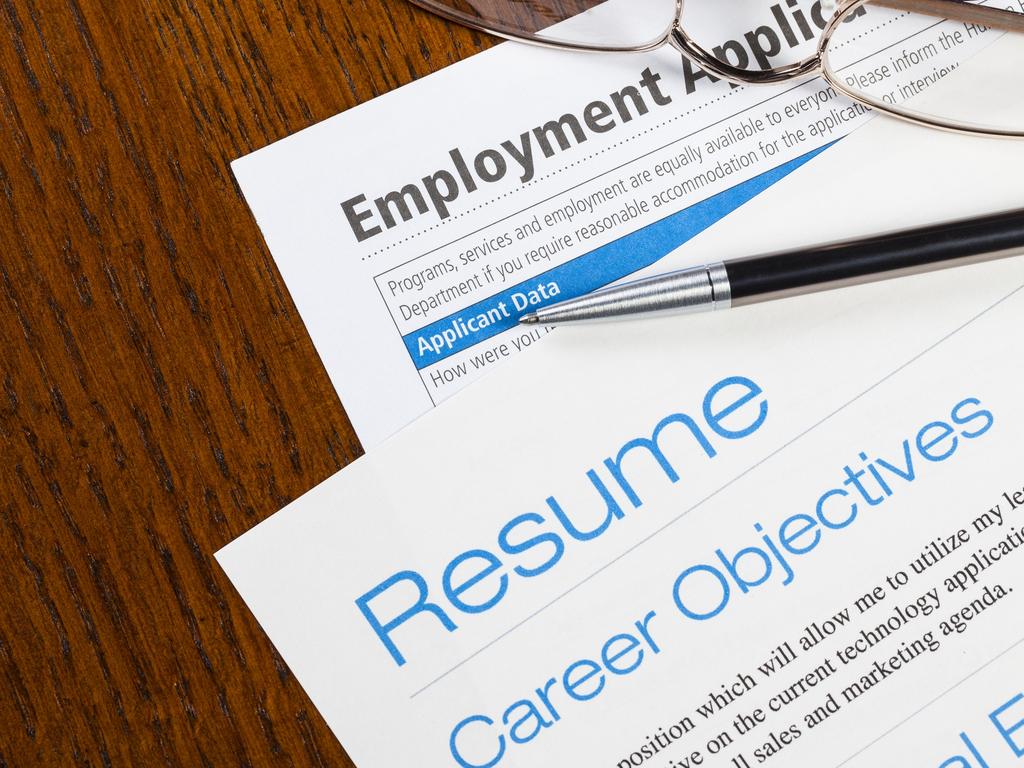Things job applicants should consider when negotiating pay for a new role
More jobseekers are listing their salary upfront to avoid lowball offers — but could naming your price cost you the job? See what experts say.

National
Don't miss out on the headlines from National. Followed categories will be added to My News.
Job candidates are increasingly detailing their desired salary in their resumes – but experts warn the move could see applicants instantly ruled out for roles.
Recruiters say resumes that list a candidate’s expected pay recently started emerging, in what appears to be a reversal of the practise of hirers including salary details in job advertisements.
Talent Butler founder Mathew Thompson believes candidates are simply trying to avoid wasting time interviewing for roles that fall short of their income requirements.
But he warns the move could backfire, particularly if a job that pays lower than desired comes with other perks that make it worthwhile.
“If a job comes with flexibility or good prospects for progression, or it’s just a great job that you’ve had your heart set on, but it pays $90,000 and you’ve said you need $100,000, you’ve already ruled yourself out before you’ve even had a chance to discuss it,’’ he says.
Job etiquette
Randstad professional talent director Jo Jakobs strongly advises candidates against including expected salary in their job applications, warning employers have the upper hand when it comes to hiring.
“The more barriers you put up (in the initial job application stage) the harder you are going to make it to get cut through with an organisation,’’ she says.
Discussions about pay are best had face-to-face to allow for negotiation, and typically occur during the interview phase, Jakobs says.
Bringing the topic up earlier could be considered bad manners.

“There’s still an etiquette when it comes to applying for jobs and it’s not nice etiquette to bring up salary right at the get-go,’’ Jakobs says.
“One disadvantage is you potentially lock yourself out of an opportunity because companies look at (the salary details in a resume) and say, ‘We can’t afford to pay that’. So they dismiss you before they’ve even had a chance to engage with you.
“But maybe they also want to employ people that are passion and purpose-led more than money-led so you’re making it hard (for them to hire you) because you’re making it about money.’’
Jakobs says candidates wanting to know how much a role will pay would be better served consulting platforms such as Glassdoor and LinkedIn, researching the gender pay gaps of companies through the Workplace Gender Equality Agency and seeking out the expertise of professional recruiters.
How to raise pay
While some recruiters will be offended by resumes that list a candidate’s desired salary, Thompson says he finds it refreshing.
“It made (the applicants) stand out from the rest and that’s something you want to do,’’ he says.
But he encourages applicants to include a salary range, as well as negotiables in lieu of pay, rather than an arbitrary figure.
“You don’t want to come across as saying, ‘I won’t work for anybody for less than $100,000’,’’ Thompson says.
“List your salary range and say, ‘This is what I’m seeking, however there’s flexibility for the following’, and then list what you would be willing to negotiate (in exchange for your preferred salary).
“The negotiables could be dependent on the location (of the job), the freedom to work from home, the project type or the opportunity for progression.
“Then, if you’ve said my range is $80,000 to $100,000, the company could come back and say we only have a budget of $80,000 but we will give you all of that (non-salary benefits that were requested).’’
Thompson says listing the salaries received in previous jobs could also be seen as less aggressive that stating the salary needed for future roles.
“It comes across as less you are demanding a certain salary,” he says. “It paints the picture of you started off five years ago on $70,000, or whatever it is, but you went up the ranks and now you are on this salary.’’
Be realistic
Expected salaries should never be included in applications for positions which detail the pay within the job ad, Thompson says. By applying for the role, “you are indicating you are already happy with the salary’’ on offer.
He advises those starting out in their career also refrain from listing salaries in resumes and says it’s a practise best left to mid or late career.
In all instances, a desired salary range should be based on the value a candidate can bring to a role and not on cost-of-living pressures or personal financial need, he says.
Avoiding road

blocks
Tech sales professional Lucy Tresidder, 33, says she would never include an expected salary on job applications, fearing it would work against her.
Even detailing the pay received for previous jobs is risky, she says, and could be viewed by recruiters as being over-inflated.
But Tresidder says greater transparency around pay is needed in Australia – noting tech jobs advertised in the United States must include a salary range but here they do not.
The onus to disclose should rest with the hirer, not the candidate, she says.
Tresidder says the latter could be particularly disadvantageous to women, who she believes typically underestimate their worth.
“Your current salary and package do not represent the value you have in a new role,’’ she says.
“When you’re applying for roles, you don’t need any additional roadblocks.’’
Originally published as Things job applicants should consider when negotiating pay for a new role






